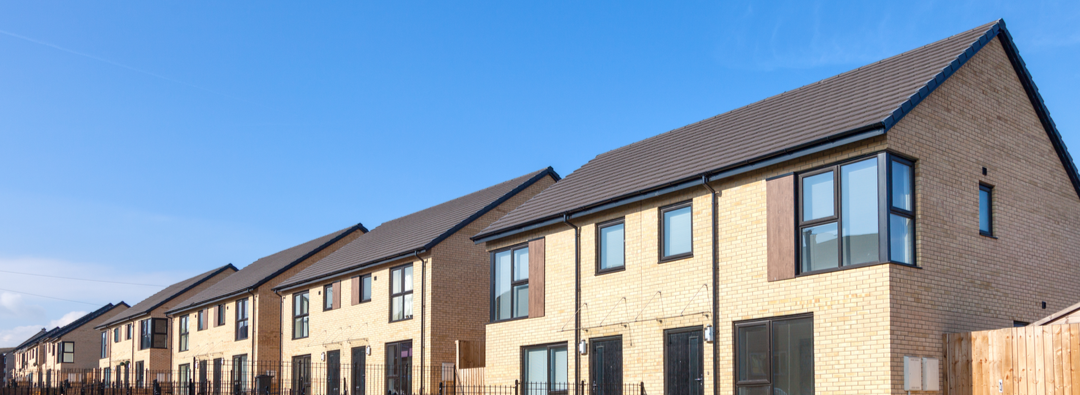
Stepping into the world of homeownership can be an exhilarating experience, especially when considering buying a new build home. The allure of a pristine, untouched house designed to your taste is hard to resist. However, the process of buying a newly built property differs significantly from purchasing an older, pre-owned home. Here’s a comprehensive guide to understanding the unique aspects of a new build house or property during this journey.
1. Why Choose a New Build Home?
Before delving into the process, it’s worth understanding why new build homes are so appealing many developers:
- Customization: One of the biggest perks is the ability to tailor the property to your liking. Whether it’s the layout, fittings, or finishes, there’s a degree of personalization available.
- Modern Standards: Newly built homes tend to be more energy-efficient, built with the latest building standards, and often come equipped with modern technology.
- Warranties: Most new builds come with a builder’s warranty, offering peace of mind against potential defects.
2. Starting the Search
The quest for the perfect new build home begins with research:
- Developers: Begin by identifying reputable developers in your desired area. Check their track record, read reviews, and visit previous developments if possible.
- Location: Ensure the location aligns with your lifestyle needs. Consider factors like proximity to work, schools, public transport, and local amenities.
3. Visiting Show Homes
Once you’ve shortlisted some developments, arrange to visit show homes. This gives you a tangible feel of what your potential home might be like.
- Take Notes: Capture details about the quality of finishes, space utilization, and any other specific features you like or dislike.
- Ask Questions: Understand what’s included in the base price and what might be considered an upgrade.
4. Making the Reservation
Found the perfect property? The next step is usually reserving parking space for it.
- Reservation Fee: Developers typically require a fee to reserve a plot. This ensures the home isn’t sold to someone else while you finalize your purchase.
- Know the Timeline: Check how long the reservation holds the property for you. It’s typically 28 days but can vary.
5. Securing a Mortgage
For many, asking price for buying a new build home involves getting a mortgage:
- Mortgage in Principle: Before reserving a property, it’s wise to have a mortgage in principle. This gives an indication of how much a lender might offer you, based on a preliminary assessment.
- Specialist Mortgages: Some lenders offer mortgages specifically designed for new builds. Explore these options, as they might have terms that better suit your situation.
6. Conveyancing
Once you’ve reserved your home, you’ll need a solicitor estate agent or conveyancer to handle the legal aspects of the purchase:
- Choose Wisely: Opt for someone with experience in new build properties. They’ll be familiar with the intricacies of such transactions.
- Exchange of Contracts: After your mortgage is confirmed, you’ll exchange contracts and pay the deposit. At this point, your commitment to buying the property is legally binding.
7. Snagging Survey
Before the completion date, it’s advisable to conduct a snagging survey:
- Purpose: This survey identifies any defects or issues with the property. While new build homes are fresh and modern, it’s not uncommon for minor issues to be present.
- Professional Help: Consider hiring a professional to conduct this survey. Their trained eye might spot things you miss.
8. Completion and Handover
Once everything’s in order and any snags are addressed:
- Final Payment: The balance of the purchase price is transferred from your lender to the developer.
- Handover: You’ll receive the keys, warranties, and any relevant documentation. It’s time to move into your brand-new home!
9. Post-Purchase Considerations
After moving older property in, a few things should be on your new property radar:
- Warranty: Be aware of what’s covered under your builder’s warranty and for how long. Address any issues within this period.
- New Build Community: Moving into a developing community means you might have ongoing construction around you. Be prepared for this transient phase, as it’s a small price to pay for a brand-new home in a burgeoning neighborhood.
National House Building Council (NHBC)

The National House Building Council (NHBC) is a UK-based organization that serves as the standard-setting body for home builders and the main warranty and insurance provider for new homes. Established in 1936, the NHBC’s main goal is to raise the construction standards of new homes in the UK, ensuring that buyers are protected and receive quality housing.
Key Points about NHBC:
- Role and Purpose: NHBC plays a dual role. It sets standards for the design and construction of homes and provides a warranty service known as Buildmark. This warranty protects homeowners against certain defects.
- NHBC Standards: NHBC publishes its standards, which serve as a comprehensive technical guide to developers on how to construct homes that meet and surpass industry benchmarks.
- Warranty and Insurance: The NHBC Buildmark warranty lasts up to 10 years. The first two years – often referred to as the builder’s warranty period – cover any defects or issues caused by the builder’s failure to adhere to NHBC standards. From years three to ten, the warranty covers any structural or drainage issues.
- Registration: Builders and developers who want to offer the NHBC Buildmark warranty need to register with the NHBC. Once registered, these builders are subject to NHBC’s quality standards and inspections.
- Inspections: As part of its commitment to quality, NHBC carries out spot-check inspections at various stages of construction. This ensures that the homes are being built to the appropriate standards.
- Training and Qualifications: NHBC provides training services to construction professionals to further improve the quality of home building in the UK.
- Dispute Resolution: In cases where homeowners and builders have disputes over potential defects during the warranty period, NHBC can act as a mediator to help find a resolution.
- Homeowner Portal: The NHBC Homeowner Portal allows homeowners to access all the information about their Buildmark warranty and insurance policy. It provides useful advice on how to maintain their home and information on what to do if they identify a potential defect.
- Protection for Homebuyers: The existence of NHBC and its standards provides a level of confidence to people buying new build homes in the UK. It reassures them that there’s a body ensuring the quality of construction and a system in place should problems arise.
What is a Mortgage Lender?
A mortgage lender is an institution, typically a bank or a financial company, that provides loans to individuals or businesses for the purpose of purchasing real estate. In return for granting the loan, the lender receives a promise from the borrower to own existing property and repay the funds, typically with interest, over a predetermined period.
Types of Mortgage Lenders:
- Commercial Banks: These are traditional banks that offer a range of financial services, including mortgages. Examples include Bank of America, JPMorgan Chase, and Wells Fargo.
- Savings and Loans Associations (S&Ls): Originally designed to promote homeownership, they are similar to banks but focus more on offering mortgages and savings accounts.
- Credit Unions: Member-owned financial cooperatives that offer a variety of banking services, including mortgages, to their members.
- Mortgage Banks: Institutions that specialize in originating and selling mortgages to secondary market investors, such as Fannie Mae and Freddie Mac.
- Online Lenders: With the advancement of technology, online-based lenders like Quicken Loans (Rocket Mortgage) have become popular due to the convenience they offer.
- Private Lenders: These are individuals or groups who finance mortgages using their funds, typically at higher interest rates and for shorter terms. They’re sometimes used by those who might not qualify for traditional financing.
How Does the Process Work?
- Pre-Approval: Before house-hunting, potential homebuyers can obtain a pre-approval letter from a lender. This letter indicates how much the lender might be willing to lend based on the borrower’s financial status.
- Application: Once a property is selected, the borrower fills out a mortgage application, providing personal and financial information.
- Underwriting: The lender assesses the risk of lending to the borrower. They review credit scores, employment history, income, debts, and the property’s value.
- Approval: If the lender determines that the borrower is a good risk, they will approve the mortgage. This may come with specific terms or conditions.
- Closing: This is the final step in the home buying process. The borrower signs all necessary documents, funds are disbursed, and the lender sets up an escrow account for taxes and insurance, if applicable.
Interest Rates and Terms:
Mortgage lenders make a profit primarily through the interest charged on loans. The interest rate a mortgage offer can be fixed (unchanging for the duration of the loan) or variable (can adjust at specific times). The term of the loan, typically 15, 20, or 30 years, determines how long the borrower has to repay it.
Role of Mortgage Brokers:
A mortgage broker acts as an intermediary between borrowers and lenders. They help borrowers find the best loan terms by comparing offers from various lenders. While they can simplify the process, it’s essential to note that brokers might receive a commission from the lender for facilitating the loan.
Exchange Contracts
In property transactions, especially within the UK, the ‘exchange of contracts’ is the point where both the buyer and the seller are legally committed to the sale of build property and purchase of the property. Once contracts and property price are exchanged, the terms of the deal are fixed, and neither party can back out without incurring penalties.
Purchase Price
The purchase price is the total amount paid by a buyer to a seller in exchange for a product, service, or asset. This price does not just refer to the base price of an item, but it can also encompass additional charges such legal fees such as taxes, delivery fees, and other surcharges management fees, depending on the context.
New Build Property
The allure of a new build property is evident in its fresh, untouched charm and the opportunity to inhabit a space no one else has before. As the name suggests, a new build property refers to a home or commercial space that has recently been constructed and has had no prior occupants.
Advantages of Buying a New Build Property:
- Low Maintenance: Everything is brand new, reducing the immediate need for repairs and renovations.
- Energy Efficiency: Modern construction standards usually emphasize energy-saving features, leading to reduced utility bills.
- Safety Standards: New builds often incorporate the latest safety regulations and standards, such as fire safety norms.
- Chain-Free: Buying a new build often means there’s no upward property chain, potentially simplifying the purchasing process.
What is a Reservation Fee?
A reservation fee is an upfront payment made by a potential buyer to a developer or seller, signaling a serious intent to purchase a property. By paying this fee move in date, the buyer typically ensures that the property is taken off the market for a specific period, preventing other potential buyers from purchasing it during that window.
Purpose of the Reservation Fee:
- Commitment: It demonstrates the buyer’s genuine interest and commitment to the purchase.
- Exclusivity: The property is reserved for the interested buyer, giving them time to arrange finances, conduct surveys, or fulfill other prerequisites without the fear of losing the property to another buyer.
- Compensation: It serves as a financial buffer for the developer or seller. If the buyer decides to pull out of the purchase, the developer might retain the fee as compensation for the time the property was off the market.
How is it Different from a Deposit?
While both entail upfront payments in the context of property transactions:
- Reservation Fee: Paid to reserve a property for a specific duration. It’s generally a smaller amount than a deposit and is paid earlier in the buying process.
- Deposit: A more substantial amount paid on the exchange of contracts, showing the buyer’s commitment to the purchase. This is usually a percentage of the property’s purchase price.
What is Ground Rent?
Ground rent is an annual fee paid by the leaseholder (or tenant) to the freeholder (or landlord) of a property. Essentially, it’s a charge for “renting” the land on which build house or a leasehold property stands.
What is a Reservation Period?
The reservation period refers to a specific timeframe during which a property is taken off the market in favor of a potential buyer who has shown serious intent to purchase. Typically initiated by the payment of a reservation fee, this window ensures that the developer or seller will not entertain other offers or sell the property to another party.
What is a Warranty Provider?
A warranty provider is an entity, often the legal side of a company or organization, that offers guarantees on the functionality, reliability, and integrity of products or services. These warranties promise repair, replacement, or maintenance under specified conditions, ensuring the buyer isn’t left at a disadvantage due to defects or unforeseen issues.
Types of Warranty Providers:
- Manufacturers: Many manufacturers provide warranties directly on their products, assuring customers of the quality and longevity of their purchase.
- Third-party Providers: Separate from the manufacturer or seller, these entities offer extended warranties or service contracts, often covering additional issues or extending beyond the original warranty period.
- Homebuilders and Developers: In the realm of real estate, particularly new builds, developers might offer structural warranties, ensuring the property is free from major structural defects.
The Scope of Warranties:
- Limited Warranty: Covers specific parts or conditions. For instance, a product might have a warranty only on its motor or primary component.
- Full Warranty: Offers comprehensive coverage on the product, promising repair or replacement if it fails to function as specified.
- Lifetime Warranty: Guarantees repairs or replacements for the product’s life, though “lifetime” often refers to the product’s market life, not the owner’s lifespan.
- Home Warranties: Separate from insurance, these cover repairs and replacements on a home’s major systems and appliances.
What is Stamp Duty?

Stamp Duty is a tax that buyers pay on property transactions, including the purchase of homes, commercial properties, and sometimes other assets like shares. The exact name, criteria, and rates can vary depending on the jurisdiction.
How to Pay Stamp Duty?
- Determine Applicability: First, ascertain if the property or asset you’re buying is subject to Stamp Duty in your jurisdiction.
- Calculate the Amount: Use online calculators or consult with a solicitor/conveyancer to determine the exact amount.
- Payment Window: After completion of the property purchase, there’s usually a set window (e.g., 14 days in the UK) within which the duty must be paid.
- Payment Process: Often, your solicitor or conveyancer will handle the payment on your behalf, ensuring compliance. They’ll then provide you with a receipt or confirmation of payment.
Conclusion
Buying a new build home can be a rewarding experience, giving you the chance to inhabit a space that’s uniquely yours. While for first time buyers the process might seem daunting, breaking it down step by step makes it manageable. With diligent research, informed decisions off plan home through, and a bit of patience, you’ll be on your way to owning your dream home.
You can find more information on our website, Weatherill Property Group

Recent Comments